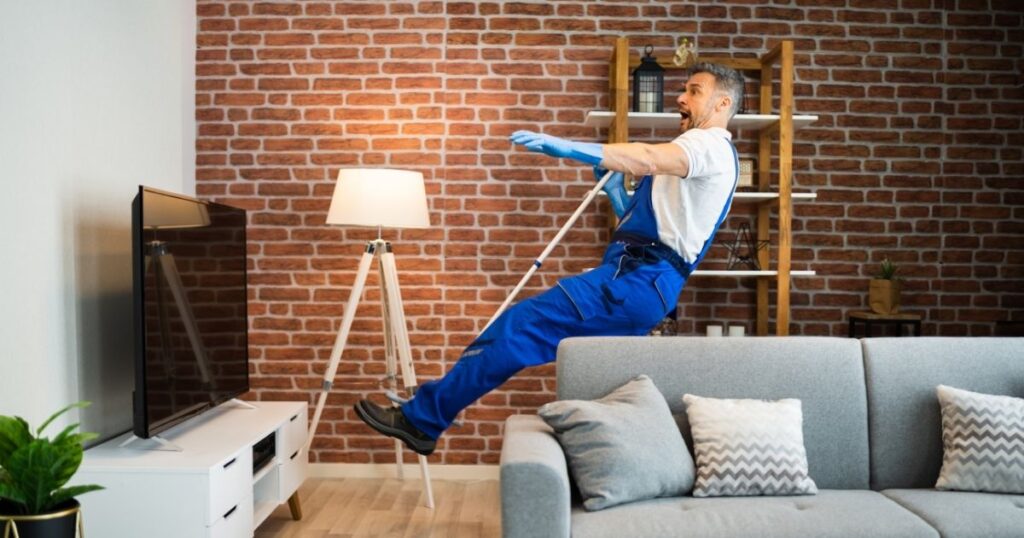Our Family Has Given A Voice To The Injured For Over 50 Combined Years

One area often discussed in legal claims for slip and fall accidents is the loss of enjoyment of life. This concept refers to the diminished ability to participate in activities that bring fulfillment and happiness due to injuries sustained in an accident. If you were injured in this type of accident, loss of enjoyment of life could play a role in your claim.
What Does Loss of Enjoyment of Life Mean?
Loss of enjoyment of life is a legal term that describes the reduced ability to enjoy activities or experiences that were once meaningful or pleasurable. It is often tied to a person’s physical or emotional condition following an injury.
In the context of a slip and fall injury, this could also mean the inability to perform daily tasks, participate in hobbies, or enjoy quality time with loved ones. It goes beyond physical pain and examines the broader impact on an individual’s lifestyle and well-being.
How Is Loss of Enjoyment of Life Different from Pain and Suffering?
While these terms may seem similar, they address different aspects of an individual’s experience after an injury.
- Pain and suffering typically focus on the physical and emotional discomfort caused by an injury. This can include chronic pain, temporary or permanent disabilities, and emotional distress such as anxiety or depression.
- Loss of enjoyment of life specifically evaluates how the injury has affected a person’s ability to find satisfaction in activities or experiences that once brought joy. For example, a person may experience pain from a broken leg but also suffer from the inability to participate in a favorite sport or enjoy social outings.
What Types of Activities Can Be Affected?
The types of activities impacted vary from person to person, depending on their lifestyle and interests:
- Recreational activities like hiking, swimming, or biking.
- Social engagements like family gatherings or community events.
- Hobbies such as cooking, painting, or gardening.
- Professional activities if the injury affects career-related pursuits.
Even seemingly simple pleasures, such as playing with grandchildren or taking a walk in the park, can be impacted by a slip and fall injury.
How Is Loss of Enjoyment of Life Proven in a Slip and Fall Case?
Demonstrating loss of enjoyment of life requires evidence that shows how an individual’s ability to enjoy life has been affected. This can include testimony from the injured party, as well as statements from friends, family, or coworkers who have observed changes in the person’s behavior and activities.
Medical records also play a critical role, as they can document the extent of the injury and its impact on mobility, cognitive function, or emotional health. In some cases, journals or diaries maintained by the injured individual may provide insight into their experiences and limitations following the incident.
Can Loss of Enjoyment of Life Be Compensated?
Loss of enjoyment of life is often included as a component of non-economic damages in a personal injury claim. Non-economic damages refer to compensation for intangible losses, such as emotional distress or diminished quality of life. Unlike economic damages, which cover measurable expenses like medical bills and lost wages, non-economic damages focus on the personal impact of the injury.
The amount of compensation for loss of enjoyment of life depends on the severity of the injury, the individual’s lifestyle before the accident, and the degree to which their quality of life has been affected.
Why Is It Important to Address Loss of Enjoyment of Life in Legal Claims?
Addressing loss of enjoyment of life acknowledges the broader impact of an injury beyond physical harm. Compensation for this type of loss can help individuals adjust to their new circumstances and seek resources that may improve their quality of life. The full extent of the injury’s impact is recognized in a legal context.
Essex County Slip and Fall Lawyers at Goldstein & Goldstein, LLP Help Clients Who Have Diminished Quality of Life After Their Accidents
If you experienced a slip and fall injury and believe it has affected your enjoyment of life, seeking legal guidance is a vital step. The experienced Essex County slip and fall lawyers at Goldstein & Goldstein, LLP offer free consultations and can explain your legal options. To learn more, call our East Orange, New Jersey office at 973-675-8277 or submit our online contact form. We proudly serve clients in the surrounding areas.

